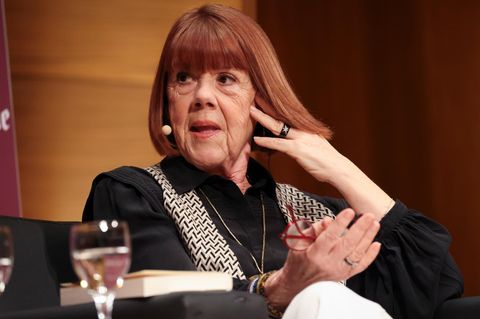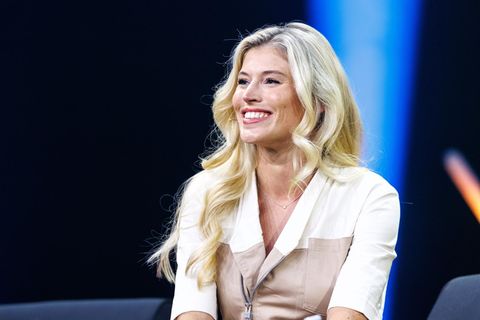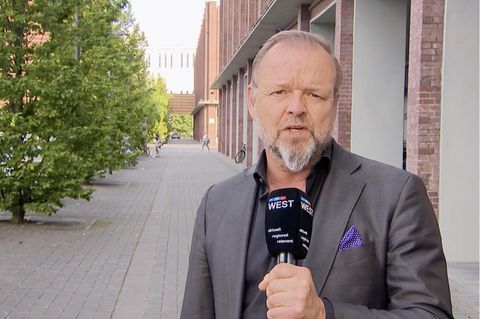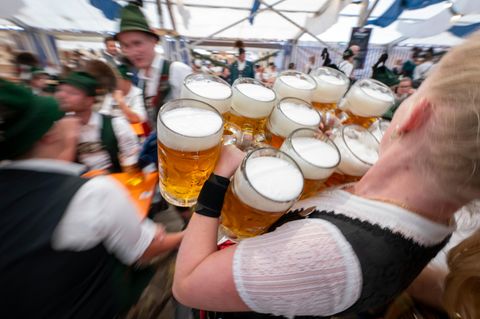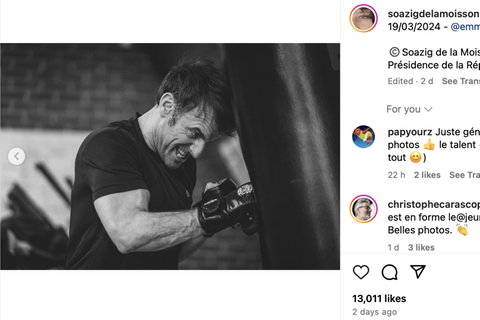When Tilmann Otto was 17 years old, he plundered his bank account and flew to Jamaica. While his mom nearly died of worry back home in Cologne, Tilmann lived for three months in a tent with peasants, bringing in the harvest and learning Jamaican dialect. When he returned to Germany, he ditched school: College no longer interested him, and he had no desire to take over the parish that his father, a priest, had inherited from his own father.
Instead, he slept while his friends attended school, stayed up all night and appeared at reggae parties as a singer and »toaster,« as rappers are called in Jamaica. Now, 10 years later, Gentleman - the name he adopted upon returning from the island - has released his second album: »Journey To Jah.«
The years between Tilmann's trip to Jamaica and his success as Gentleman saw an explosion of interest in reggae in the young man's home country. It wasn't the type of scene anyone saw developing: Unlike in London, hardly any Carribean immigrants have moved here; Jamaica is as far from Germany as the South Pole is from Florida.
»Reggae was not taken seriously here for a long time, but that has changed,« says Frank Delle, a 31-year-old who sings in the 11-member Berlin band Seeed, the most successful reggae group in the country. Last year, the group, which spells its name with three e's to distinguish itself from another, two-e'd group, sold almost 100,000 copies of its debut album, »New Dubby Conquerors.« This year, they were honored with two awards at the Echos, the German equivalent of the Grammies.
»It used to be that people associated reggae with sun, holidays and potsmoking Rastafarians,« says Frank, who was born in Berlin but grew up in Ghana, where people listened to African music, R »n« B or reggae. »That's how I became a Bob Marley fan.«
When Frank was a teenager, his family moved back to Germany: »Here people just smiled at reggae in a condescending way,« he remembers. The only places you could hear the music was at street festivals, where tofu-kebabs were tossed on the barbecue instead of sausages. That changed at the beginning of the 1990s, when the first »soundsystems« - mobile clubs with DJs and rappers - popped up around Germany, especially in Hamburg.
At parties held in abandoned houses, even techno fans who thought of reggae as boring hippie music began dancing along to its deep bass lines and hard, jolty rhythms. Reggae became a cool underground thing, although only one record store in the entire country sold the latest singles, imported directly from Jamaica. That store was in Cologne, Gentleman's hometown.
Soon, as DJs started financing trips to Jamaica by bringing reggae records back with them, Gentleman found himself heading to the island more frequently. He got a song played on Jamaican radio and realized he was making it big when he appeared in front of a 30,000-member audience in Kingston. »The people were cheering for me,« he recalls proudly.
He's also proud of the fact that Jamaican stars like Bounty Killer and Capleton have appeared on his albums. Gentleman's own fame in Germany came through a guest appearance, when he showed up on a hit song by hip-hop group Freundeskreis. »That was a breakthrough, and not only for me. Reggae in Germany got a lot more attention from then on,« he says.
Reggae has moved from being an underground phenomenon to being as popular as it was 25 years ago, during the days of Bob Marley. This time, though, the stars come from Germany, with Jamaican artists being listened to by only a small audience.
»Hip-hop definitely has done some preparatory work for German reggae,« says Frank, the singer from Seeed. »Until German hip-hop became popular, people thought the German language wasn't musical enough.«
Hip-hop has gone through its own explosion in Germany. When it was first imported from the United States, few listeners embraced it: There are no black neighborhoods here, and it took a few years for German kids to understand the lingo. Today, students use expressions like »dope,« »phat« and »diss« in the schoolyard and listen to music by groups who rap in a mixture of German and American slang. Hip-hop stars paved the way for reggae, with the biggest reggae hit being performed by Jan Delay, star of German hip-hop band Absolute Beginner.
Like Seeed and Gentleman, Jan Delay draws more on traditional roots reggae and less on modern dancehall reggae, the type of music made popular by Shaggy. The artists take different paths in how they approach their music, though: Delay and Seeed have never been to Jamaica, for example. And while Gentleman's frequent trips to the island have made him appreciate the living standards of Germany, Delay tends to criticize society in his lyrics.
The artists also act differently from their counterparts in America, focus-ing on the music rather than the flash and spectacle. Seeed goes so far as to wear suits on stage. »In Germany, when a kid climbs up on a table and starts singing, it is perceived as negative,« Frank, the Seeed singer, said. »I would educate my children with a healthy attitude toward exhibitionism.«
Sebastian Hammelehle, 32, used to share a flat with a reggae DJ. He was happy when the DJ moved, as the bass lines cost him too much sleep
